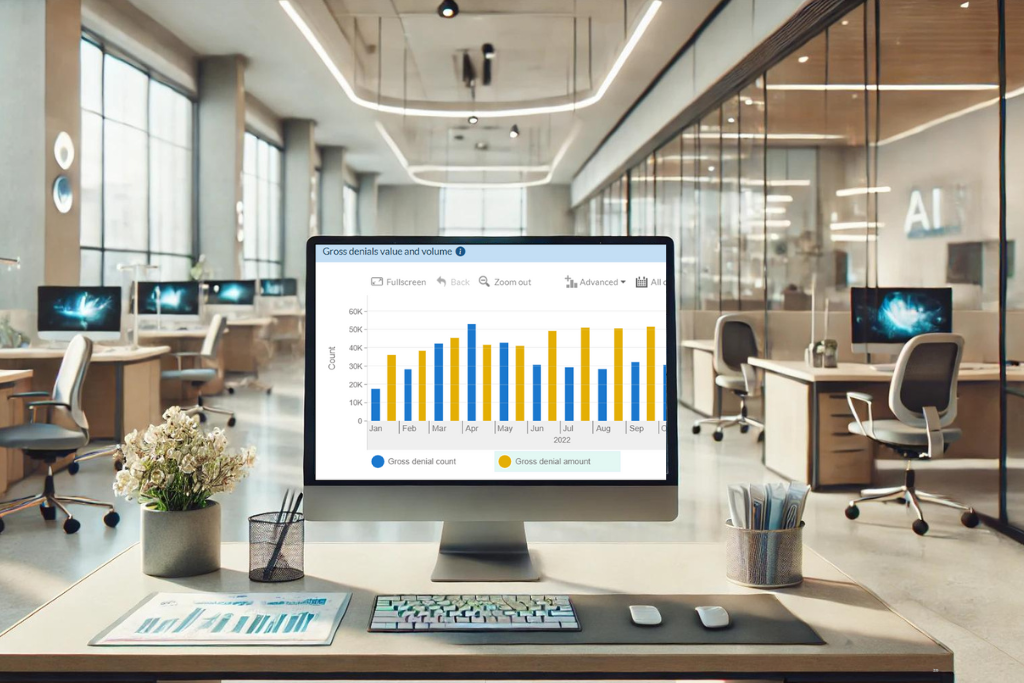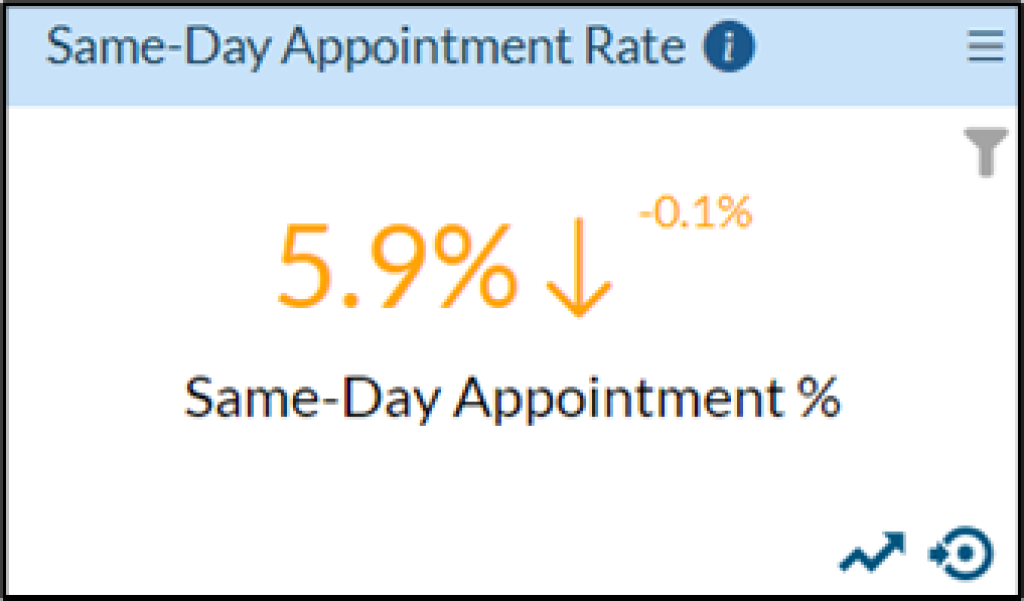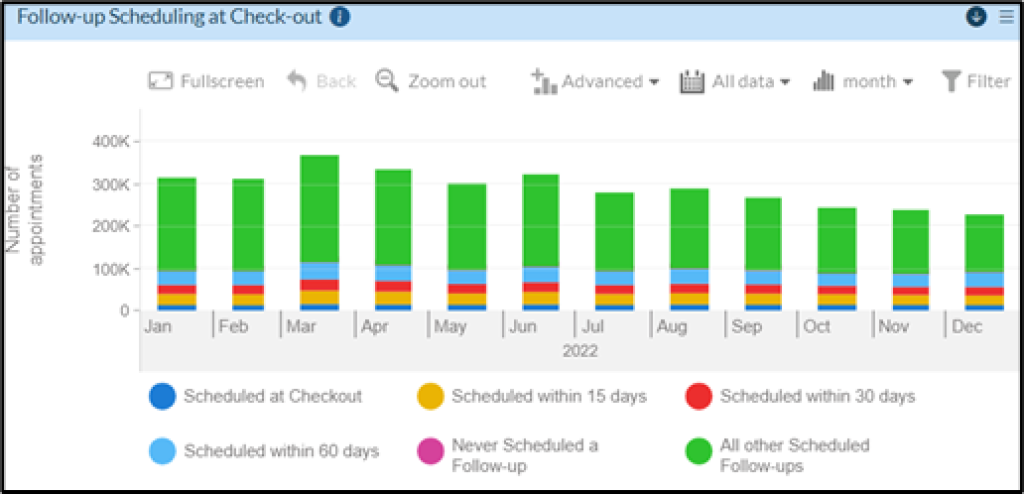
by Carrie Bauman
Healthcare operational analytics involves the use of data to create intelligence that improves the efficiency and effectiveness of healthcare operations. It encompasses analyzing data from various aspects of healthcare operations such as patient scheduling, clinical workflows, and resource utilization. By leveraging operational analytics, healthcare leaders and providers can gain insights into their performance, identify areas for improvement, and implement data-driven strategies to enhance operational efficiency.

AI plays a pivotal role in healthcare operational analytics by automating data analysis, identifying patterns, and providing actionable insights. The application of AI in healthcare operational analytics includes predictive analytics in healthcare, which uses historical data to predict future trends and outcomes. This predictive capability allows healthcare providers to anticipate patient needs, optimize resource allocation, and improve operational efficiency.

AI in healthcare operational analytics streamlines the appointment scheduling process. By analyzing historical appointment data, AI can predict patient no-shows and cancellations, allowing healthcare providers to optimize their schedules. Predictive analytics in healthcare helps in understanding the patient demographics that are more likely to miss appointments, enabling proactive measures to reduce no-show rates and improve operational efficiency.
The check-in process is critical to maintaining the flow of operations in a healthcare facility. AI-driven operational analytics can monitor check-in times, identify bottlenecks, and provide recommendations for streamlining the process. By analyzing check-in data, AI can predict peak times and allocate resources, accordingly, ensuring a smooth and efficient check-in process.
The clinical time that providers spend with patients is at the heart of healthcare services. AI in healthcare operational analytics can analyze clinical time data to identify inefficiencies and suggest improvements. For instance, AI can highlight variations in clinical time across different providers or specialties, enabling healthcare managers to implement best practices and optimize clinical workflows.
Efficient check-out processes are essential for reducing delays and ensuring patient satisfaction. AI can track and analyze check-out data, identifying patterns that lead to delays. By leveraging predictive analytics in healthcare, providers can anticipate check-out times and implement strategies to expedite the process, thus enhancing operational efficiency.

AI-driven operational analytics can also enhance healthcare marketing efforts. By analyzing patient data and identifying trends, AI can help healthcare providers understand which marketing strategies are most effective. Predictive analytics in healthcare can identify the demographics most likely to respond to specific marketing campaigns, enabling targeted and efficient marketing efforts.
Managing prescriptions efficiently is crucial for patient safety and operational effectiveness. AI in healthcare operational analytics can monitor prescription patterns, identify anomalies, and ensure compliance with regulations. Predictive analytics in healthcare help in forecasting prescription trends, allowing for better inventory management and reduced wastage.
AI-powered operational analytics can be configured to send alerts when performance metrics fall outside of established Key Performance Indicators (KPIs). These alerts enable healthcare providers to address issues promptly, ensuring that operations remain efficient and compliant. For example, if the average check-in time exceeds the set threshold, an alert can prompt immediate action to investigate and resolve the issue.
Implementing AI in healthcare operational analytics involves several steps. First, healthcare providers need to integrate AI-driven analytics platforms that can access and analyze their operational data. These platforms should offer user-friendly interfaces and customizable dashboards to meet the specific needs of different users.
AI in healthcare operational analytics supports data-backed decision-making by providing real-time insights into operational performance. Daily data refreshes and dynamic displays ensure that healthcare providers have access to the latest information, enabling timely and informed decisions. With AI-driven analytics, healthcare managers can make confident decisions that enhance operational efficiency and patient care.
The role of AI in healthcare operational analytics is transformative, offering predictive analytics, operational efficiency, and data-backed decision-making. By leveraging AI, healthcare providers can optimize appointments, check-in and check-out processes, clinical time, marketing efforts, and prescription management. The ability to receive alerts when performance falls outside of KPIs ensures that operations remain efficient and compliant. Implementing AI in healthcare operational analytics is essential for modern healthcare providers looking to enhance their operational efficiency and improve patient outcomes.
AI in healthcare operational analytics is not just a technological advancement; it is a fundamental shift towards more efficient, predictive, and data-driven healthcare operations. As the healthcare industry continues to evolve, the integration of AI in operational analytics will play a crucial role in shaping the future of healthcare delivery.

A 30-year veteran in healthcare IT, Carrie Bauman is responsible for marketing, communications and business development strategies that drive brand awareness, growth and value for clients, partners, and investors.

2424 North Federal Highway, Suite 205
Boca Raton, FL 33431